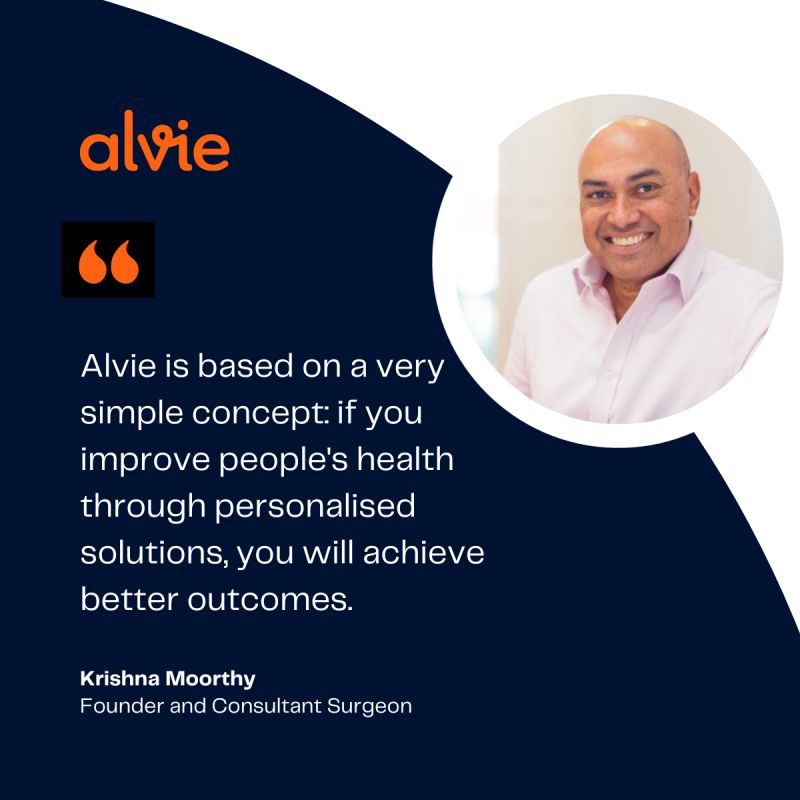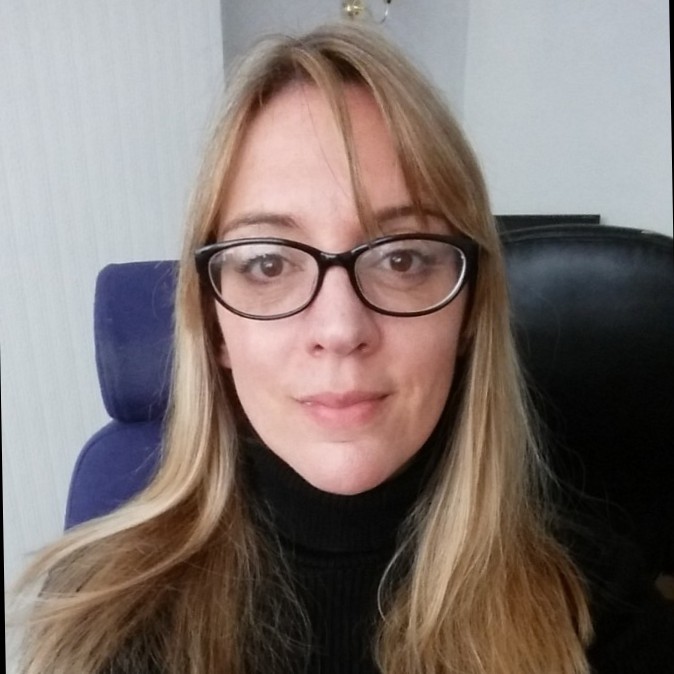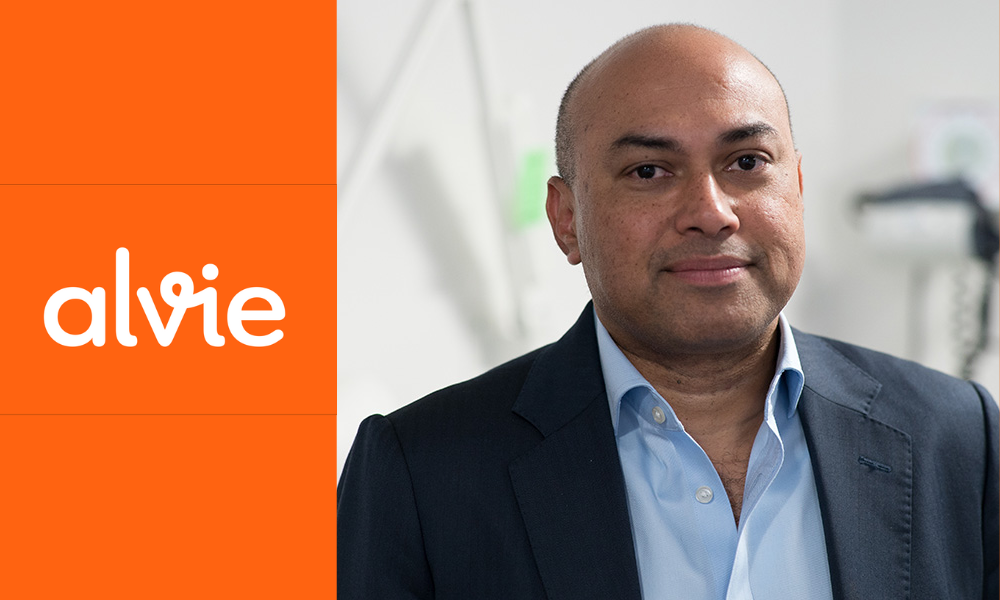For many, achieving the status of a celebrated consultant surgeon specialising in oesophageal and gastric cancer would mark the pinnacle of their career.
However, for Krishna Moorthy, who not only holds a prestigious academic position as a surgeon at Imperial College, London and has also spearheaded groundbreaking robotic surgeries in the UK, addressing the issue at a practical level is only part of the equation.
Motivated by a profound desire to assist patients in navigating the profound impact poor health has had on their lives, Moorthy took proactive steps and co-founded his own insurtech venture – Alvie Health. Established in 2018, this startup represents a revolutionary blend of human and digital health solutions, reshaping the landscape of patient care.
Beyond offering virtual expert care, personalised coaching, and remote monitoring for individuals grappling with cancer and acute conditions, Alvie Health emphasises the human element crucial for supporting patients through their treatment journeys and aiding in recovery.
Insurtech Insights caught up with him to find out more
You’re a celebrated surgeon, so what led you to launching Alvie? Was there an ‘aha!’ moment? Is there a story about your journey into entrepreneurship that you can share?
While working the NHS, I saw first-hand the devastation that poor health has on patients. Despite billions spent on cancer treatment, 1 in 2 people diagnosed with cancer either don’t start or fail to complete their treatment due to their poor health state at diagnosis or having to stop treatment protocols due to health deteriorating from the side effects of treatment.
My co-founder, Venetia and I pioneered an award-winning hospital-based pre-rehabilitation service for our own NHS patients that aimed to improve their health, whilst they were on treatment. Through numerous research projects, we demonstrated the positive improvement in our patients’ overall physical and emotional health, as well as clinical outcomes. We were able to reduce surgical complications such as post-operative pneumonia by 50% and reduce the time people stayed in hospital after surgery.
One day, during a post-operative ward round, I was told by one of my patients that the programme had made a profound impact on his physical fitness during chemotherapy and he was convinced that the programme was the reason that he was making such a rapid recovery after major surgery (he had just walked two rounds of the ward whilst attached to numerous drips and tubes).
This conversation was overheard by a patient in the bed next to him, from another cancer specialty, who was disappointed that he had not been offered the programme. Since that day, my co-founder and I made equity of access to our overarching mission, and a digital/ virtual application was the inevitable solution.
What were the biggest challenges you faced as a newbie in the business space/insurance world, launching a startup – and how did you overcome them?
As two clinicians trying to set up a business, we have had to learn so much and have faced a number of challenges along the way. One of the greatest challenges has been navigating the mis-aligned incentives between the payors and providers in the private healthcare market. In this fee for service model, the payors want to drive better outcomes to realise cost-savings but see the provision of services such as Alvie as the responsibility of the providers, whilst providers are disincentivized from providing services that may impact their revenues.
However, this is gradually changing as we transition to a value-based healthcare system which aligns the payors and the providers. Alvie’s risk-sharing commercial model as well as a continuous programme of evaluation and impact demonstration has ensured a relationship of trust and transparency with the private medical insurers who directly commission Alvie for their members with cancer. In fact, we are proud to showcase the impact of our partnership with Vitality health during Insurtech insights.
What differentiates Alvie from other market contenders?
Cancer and other acute care conditions are complex, and patients are often very sick. It is definitely a strong advantage that we have over 20 years of clinical expertise in this area. The need for clinical validity and evidence, including health economic data, is essential to win the trust of our institutional customers such as insurance companies. Right from the outset, we were clear that we would not just develop an App.
Our solution would provide an element of human support which is proven to be essential in driving engagement with behavioural interventions especially in people in challenging health circumstances within a relatively short period of time. However, in order to scale our hybrid solution and also make it affordable to the payor, we have developed a unique stratification or segmentation process that tailors our service based on an individual’s risk profile and needs.

You performed the UK’s first robotic gastric bypass. Is robotic medicine a feature of Alvie health – and how do you view it as a new, medical innovation?
Cancer treatment, including surgery, often has a worse impact on the individual than the disease itself. Adopting minimally invasive surgery, including robotics, reflects my own personal mission, which is closely aligned to Alvie’ s mission, which is to protect people’s health from the inevitable deterioration that occurs as a result of the treatment.
Most cancer surgeries are long, complex and challenging, and result in significant complications, prolonged hospitalisations and long recovery times. The surgical precision offered by robotics allows surgeons like me to undertake surgery within the narrow confines of body spaces such as the pelvis and the chest resulting in minimal trauma, lower risk of complications and quicker recovery.
However, I have grown to realise that innovations in just surgical techniques will not result in the best post-operative outcomes. To drive the best outcomes for my patients, I had to consider other factors such as anaesthetic techniques, pain control, nutrition etc. but also acknowledge the role that patients can play in contributing to their own outcomes. Pre-rehabilitation services, which are largely hospital-based, support patients to improve their health through structured programmes of exercise, nutrition and lifestyle behaviours. Alvie makes pre-rehabilitation more accessible to patients from the convenience of their own homes.
If you could revisit your journey into launching Alvie, is there anything about the process you would change, now you are ‘older and wiser’?
I have learnt so much along the way and whilst there are no regrets, this learning is essential as Alvie grows and expands into new markets and verticals. Most of the learning could be categorised into those to do with product-market fit, growth and technology development.
Firstly, finding product-market fit has been a challenge for a few reasons. The misalignment in incentives between payers and providers as discussed earlier but also because our B2B customers see the many problems that patients face but aren’t quite sure about the solution. Demonstrating the value of a hybrid solution in a ‘noisy’ market full of AI-based Apps has been a challenge.
Secondly, growth within the healthcare space is slow, both in public and private systems. Sales cycles are long, and it takes a long time for innovations such as digital solutions to get embedded within workflows.
Thirdly, the importance of lean technology development. It is not just the digital solution (or App) that needs to start with a minimal viable product, but even every feature within the solution should be tested through an MVP first approach alongside user insights and feedback before making significant investments to productionise them.
What innovations, medically speaking, will Alvie be focusing on in the coming months? Is there anything you can share with us?
Whilst the focus has been on cancer Alvie’s approach and technology can be extended to other acute care conditions. We are aiming to expand into cardio-vascular care and general surgery. Through R&D we are integrating a number of AI techniques for scalability including specialist conversational AI to augment our chat-based coaching and expert support. We are implementing machine learning techniques to segment users into different health and behavioural risk categories to deliver a more personalised digital-first experience.
What inspires you in insurtech and healthtech today?
The opportunity to make healthcare more accessible and affordable. Many patient support services are in-person hospital-based services and are not accessible to a large number of people. Digital solutions such as Alvie can not only make them more accessible but through integrating data analytics and AI, make them more scalable and cost-effective. Digital technology creates an opportunity to empower people with choice and information and to make behavioural and lifestyle modifications for better health and well-being.
Join Krishna Moorthy in London at Insurtech Insights Europe 2024
Krishna Moorthy will be educating audiences at Insurtech Insights Europe, when he takes to the stage with Mia Liu of Vitality, to explore Virtual Care and Support to Reduce Risk and Improve Outcomes for Cancer Patients, on March 21st, at The InterContinental London – The 02. Find out more
Interview by Joanna England

Joanna England is an award-winning journalist and the Editor-in-Chief for Insurtech Insights. She has worked for 25 years in both the consumer and business space, and also spent 15 years in the Middle East, on national newspapers as well as leading events and lifestyle publications. Prior to Insurtech Insights, Joanna was the Editor-in-Chief for Fintech Magazine and Insurtech Digital. She was also listed by MPVR as one of the Top 30 journalist in Fintech and Insurtech in 2023.










